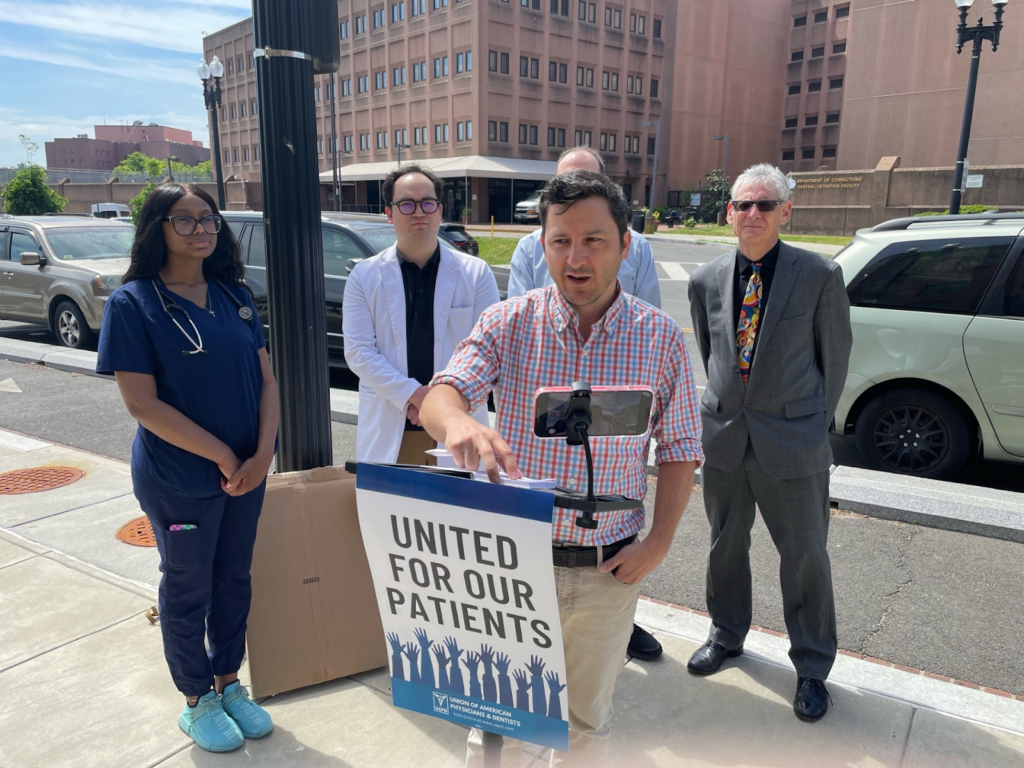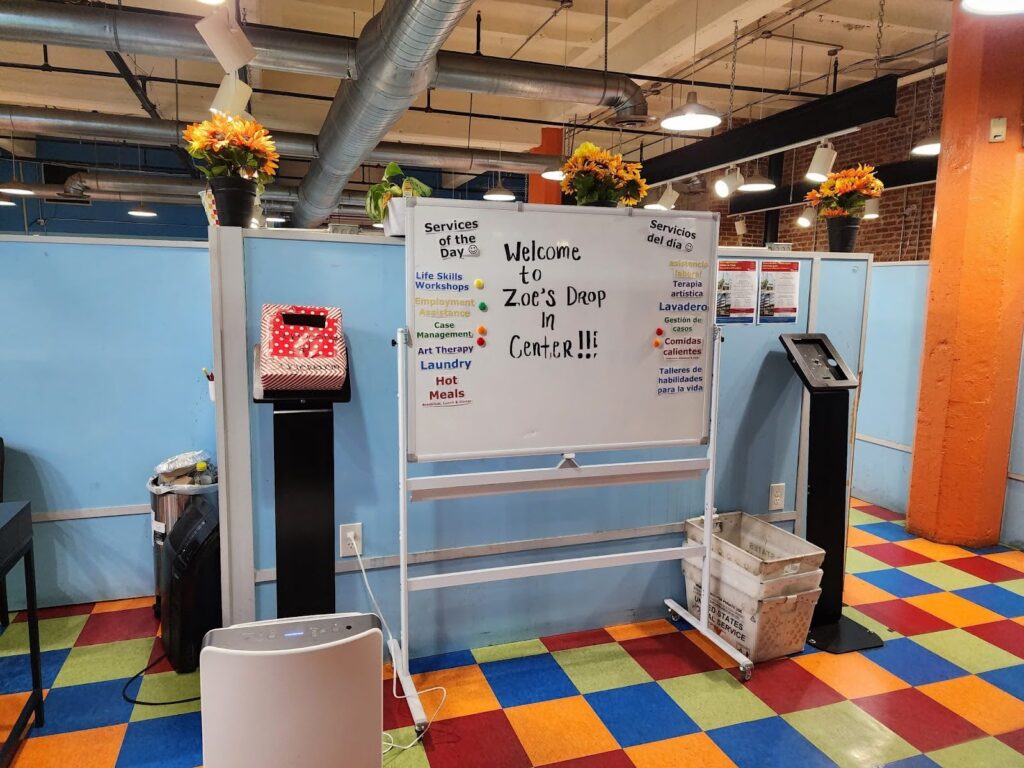Two months after collective bargaining began between Unity Health Care (UHC) and its unionized providers, the organization representing the providers’ union has filed an unfair labor charge against UHC for failing to bargain in good faith, retaliating and silencing workers. The providers hope to reach a collective bargaining agreement quickly to improve working and safety conditions and better serve community members.
“Unity continues to disrespect Washington, D.C.’s essential health care workers through unsafe working conditions, through a culture of bullying and intimidation, a revolving door of overpaid executives, lack of transparency and communication, lack of breaks or administrative time for these providers, withholding of workers pay and schedules that have left us overworked and exhausted,” said Cary Lane, the northeast regional director for the Union of American Physicians and Dentists (UAPD), which represents physicians and medical practitioners at UHC, at a press conference on April 30.
UHC was founded in 1985 to serve families and individuals experiencing homelessness, expanding throughout the years to include care for more than 90,000 patients through street outreach at sites such as community clinics and the D.C. Jail. Providers unionized in 2023 after reporting the workplace conditions and administration at UHC forced them to prioritize the number of patient visits over care.
Providers met with a team representing UHC in March to discuss issues like workplace safety, financial transparency, and high staff turnover. Since then, however, there have been no additional negotiations or meetings, according to lead negotiator Steve Kaufmann. He blames the delay on UHC’s failure to respond to substantive requests.
“There’s only been one face-to-face meeting for a union that was certified on Dec. 5, and now we’re in May,” Kaufmann said in an interview with Street Sense. “It’s just not consistent enough to get a real dialogue going on the issues that need to be resolved.”
When asked about the unfair labor charge, a UHC spokesperson said that bargaining sessions are “ongoing.”
“We are disappointed the UAPD has chosen to make claims in the press/public rather than to continue to work with us directly. Unity recognizes the important role that our providers play in caring for our patients and we remain committed to negotiating in good faith with the UAPD,” the spokesperson wrote in a statement to Street Sense.
The next meeting is tentatively scheduled for May 14, two months after the first, according to Emily Zucker, a family doctor at UHC.
Providers also alleged that UHC has been retaliating against workers. For recent performance-based salary increases, Zucker said union members were not paid while non-unionized staff members were. A UHC spokesperson said that merit increases were paid “retroactively” as of the first pay period in Jan. 2024, but did not give a reason for the delay.
The delay is difficult for physicians and practitioners — especially providers in the D.C. Jail, who say that workplace conditions prioritize the number of patient visits over quality of care.
Alexander Curtis, a family medicine doctor who resigned from UHC in February, said the failure to address safety issues drove him to leave after a year and a half with the organization.
“One of the practices was…the combination of almost no support for physicians in the role we play in the organization and the high volume of patients that we were expected to see,” said Curtis. “If one of those two things changed in a favorable direction, it would be a safer environment for the patients and those of us caring for them.”
With negotiations stalling, providers are worried that any delay will only exacerbate the staffing shortage. Providers are also not paid for their time spent in collective bargaining meetings so they said scheduling becomes an issue when meetings require a full day off from paid work.
“I really want to work together to come up with a solution that’s good for providers as well as the organization, and if they can’t meet with us that’ll never happen,” Zucker said.








